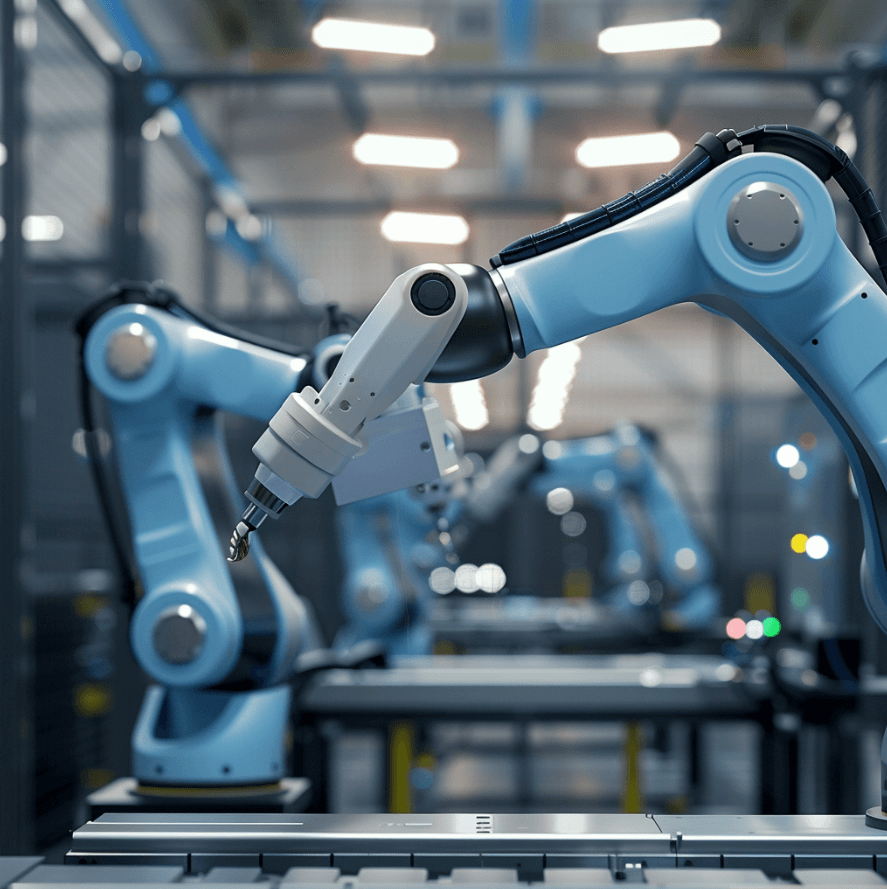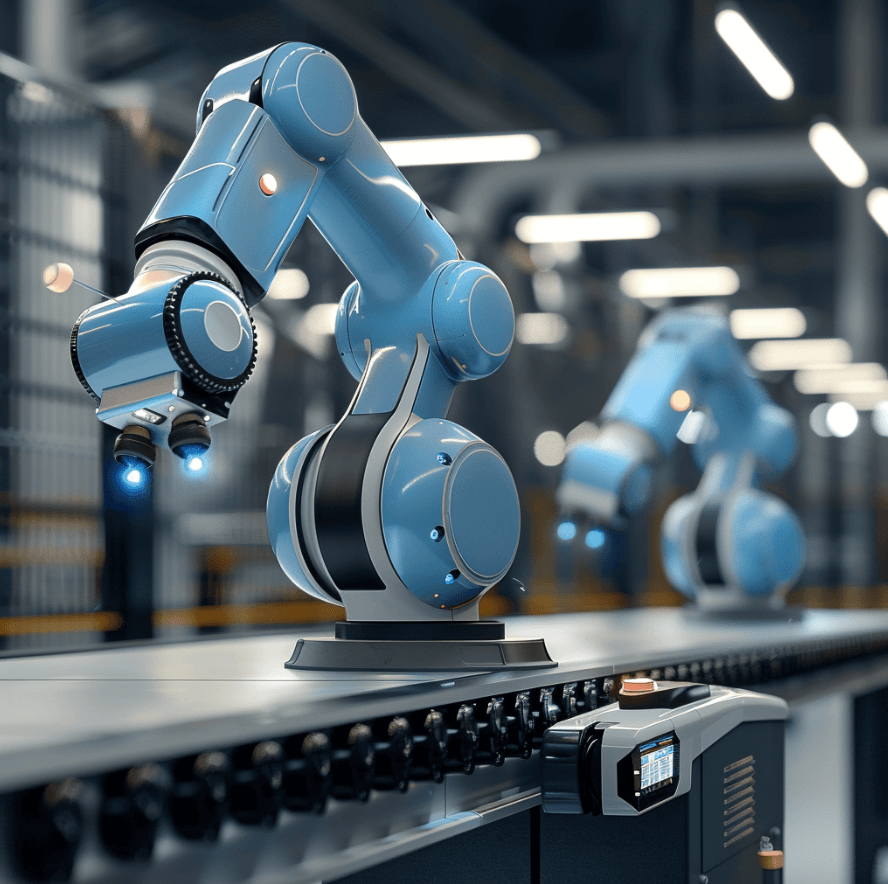

A cobot, or collaborative robot, is a robot designed to physically interact with humans in a shared workspace.
Cobots are all-around amazing, representing an entirely new breed of automation. They’re flexible, intelligent, and able to work hand-in-hand with people on the shop floor.
Plus, they’re programmed to stop operations immediately if they detect a human in close proximity – avoiding potentially injury-inducing collisions.
Let’s take a look at some of their main benefits:
When shopping for cobots, there’s such a dizzying array of choices to pick from that it could make your head spin.
So, we’ve put in the legwork for you and found the top 10 manufacturers producing collaborative marvels today:
Originating from the US, Standard Bots is quickly making a name for itself as a key innovator in the robotics industry, focusing on creating accessible and user-friendly Collaborative robots.
Their approach to making automation affordable aims to level the playing field for businesses of varying scales.
The company's pride and joy, RO1, their Six-Axis collaborative robot arm, is designed for an array of tasks including pick and place, assembly, and even quality inspections.
Plus, RO1 operates on a no-code framework, making complex programming available with zero coding expertise.
This makes Standard Bots' solutions particularly appealing to small and medium-sized enterprises seeking to integrate automation effectively.
Based in Switzerland, ABB is a true pioneer in robotics and automation. They offer a range of cobots ideal for assembly, material handling, and welding.
Their collaborative YuMi robot is the cream of the crop – one of the best in the market.
Headquartered in Japan with US operations based in Michigan, FANUC is one of the largest robotics companies in the world.
Their CR series of cobots are lightweight, easy to program, and perfect for the repetitive drudgery of tasks like pick and place or machine tending.
Kawasaki, also from Japan, is one of the leaders in the industrial robotics and automation space.
Their duAro Collaborative robots feature high payloads, long reaches, and safety features like collision detection sensors. They’re a great option if you need a heavy-duty cobot for more demanding applications.
Rethink is a German company focused on developing intelligent, adaptable robots.
Their Baxter and Sawyer robots feature computer vision, deep learning, and software that allows them to adapt to new tasks in just a few minutes. They’re designed to work directly with people on the production line.
Tehchman is a Taiwanese company that produces Collaborative robots for manufacturing and service applications.
Their TM series cobots are fast, compact and offer high repeatability for precision tasks like electronics assembly or biometrics testing. Also, they provide 3D vision and software to simplify programming.
Doosan is a South Korean company and a regional leader in robotics.
Their Collaborative robots include the M1013 and M0617, with multiple arm lengths and payloads to suit different needs. They offer enhanced safety features, easy programming, and connectivity with PLC and IoT systems.
Aubo is a Chinese robotics company that produces low-cost, lightweight Collaborative robots.
Their cobots include the Aubo-i5, i10 and i15, designed for pick and place, assembly, and machine tending. They offer a simple graphical interface for programming and controlling your cobot.
Based in Japan with a strong global footprint, Yaskawa Motoman is a frontrunner in industrial automation.
They deliver a diverse array of robots, including their HC Series cobots. Their cobots are well-known for their robustness, precision, and seamless integration into varied industrial environments that require heavy-duty applications.

Think about what’s most important for your business when you think about a cobot manufacturer—is it location, customization options, or service?
Each manufacturer offers different strengths, so let’s take a look at what you should consider:
Cobots come in many varieties to suit different needs. The most common are:
Cobot prices can range from $2,000 up to $100,000 or more, depending on the model, payload, and features. In general, a basic cobot with a 10 to 15 kg payload will cost between $35,000 to $65,000. Higher payload capacities, special environmental protection, and additional software features will increase the price.
Many manufacturers also offer financing and leasing options to make cobots more affordable.
Cobots are designed to be easy to program, even for people without an engineering background. Most cobots use intuitive graphical programming interfaces with drag-and-drop function blocks. You simply physically guide the cobot arm through the desired path or action, then the software automatically generates and downloads the program.
Many cobots can also be reprogrammed on the fly using teach pendants, with no PC required. Some cobots offer additional software options for more complex applications.
Cobots are used in virtually every industry, but some of the largest users are:
And that’s the top 10 cobot manufacturers to keep on your radar in 2024.
As we’ve gone over above, choosing the right cobot partner involves looking at a range of factors from robot capabilities and customization options to post-sales support and maintenance contracts.
The rest is just having a keen understanding of your application, budget, preferences, and, yes, willingness to finally dip your toe in the automation pond!